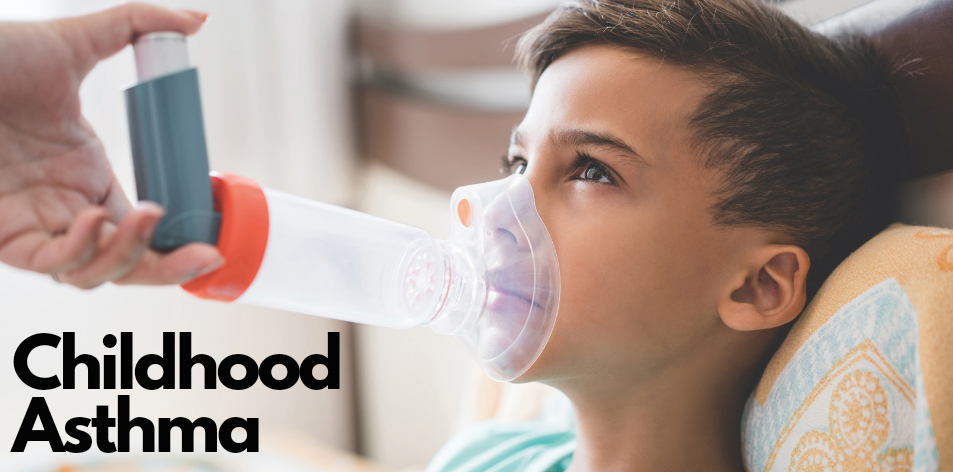
Childhood Asthma – H&S Education & Parenting
Childhood Asthma- What Every Parent Of A Child With Asthma, Needs To Know!

Childhood asthma is an incurable condition in which certain triggers such as pollen or a common cold, can cause the airways and lungs to get inflamed. Unfortunately, it is incurable and can interfere with a child’s daily routine, and can even continue into adulthood. However, the good news is that with the correct treatment the symptoms can be managed with fewer emergency room visits, missed schools days, and hospitalization, as well as minimized damage to the growing lungs.
Causes & Risk Factors:
The causes & risk factors aren’t fully understood. Below are some of the factors thought to play a role in developing Childhood Asthma:
1. Family History Of Asthma Or Allergies
2. Airway Infections At Young Age
3. Environmental factors- cigarette smoke, air pollution
4. Low Birth Weight
Signs & Symptoms:
It’s important to understand that not every child will have the same symptoms. Symptoms may also vary in the same child with every episode.
Some of the common signs/symptoms:
1. Cough- A persistent cough that doesn’t go away could be the only symptom or a frequent cough that worsens with a viral infection or is triggered by cold air or exercise.
2. Wheezing – Your child could experience a whistling sound when breathing.
3. Shortness Of Breath (SOB)
4. Chest Tightness or Congestion
Other signs/symptoms:
1. Less Energy- Child may get lethargic and may even stop to catch their breath during activities.
2. Avoid Sports/Activities
3. Trouble Sleeping
4. Trouble Eating (Infants- grunting, while eating)
Diagnosis & Treatment:
If your child has a lingering cough or chest congestion that won’t go away or repeated respiratory infections, your child could possibly have asthma. Hence, it’s important to visit a doctor if you think your child may have asthma, as early diagnosis and intervention, will help control Asthma and prevent severe asthma attacks. The doctor will take a thorough medical history, asking about allergies, symptoms, etc. The doctor will then do a thorough examination of the body after which he may order an X-ray or if the child is older than 6 he may perform spirometry which will determine the severity of asthma. Other tests such as blood tests, allergy skin tests, etc may be carried out. Once a diagnosis is confirmed a treatment plan will be developed.
Treatment:
Most drugs used in adults for the treatment of asthma are safe to use in children, however, these drugs need to be administered according to age and body weight. There are 2 main types of treatment:
1. Quick Relief- This is administered during an asthma attack to help with sudden symptoms.
2. Long-Acting- This is given to keep asthma under control & prevent airway inflammation. It is usually administered daily.
Children under the age of 4 are administered medications through a home nebulizer. Older kids may however use an HFA or hydrofluoroalkane inhaler with a spacer.
Prevention Is Better Than Cure:
Preventing Asthma & its complications or keeping asthma from worsening is important in the long-term management & control of Asthma:
1. Keep Your Child Away From Smokers, Smoke, etc.
2. Regularly Clean Carpets & Use Fresh Bedding.
3. Keep Your Child At A Healthy Weight With A Healthy Diet.
4. Stick To The Treatment Religiously As Prescribed By The Doctor.
A Severe Asthma Attack:
A severe asthma attack can be life-threatening and must be attended to immediately. The following symptoms mean your child could be having a severe asthma attack:
1. Using Stomach Muscles To Breathe
2. Severe wheezing
3. Severe Coughing
4. Trouble Walking, Talking (Catching Breath In The Middle Of A Sentence)
5. Fast Heartbeat
6. Blue Lips/Fingernails
7. Profused Sweating
A severe asthma attack can be life-threatening and must be attended to immediately. The following symptoms mean your child could be having a severe asthma attack:

